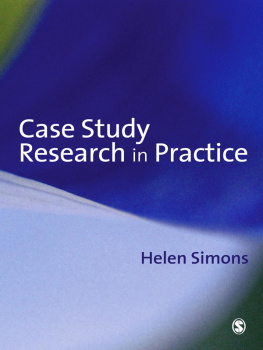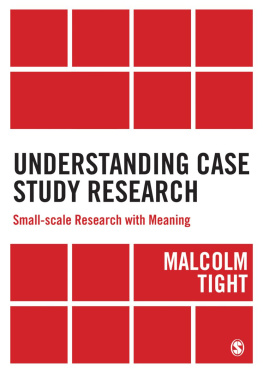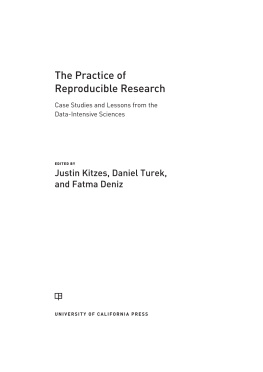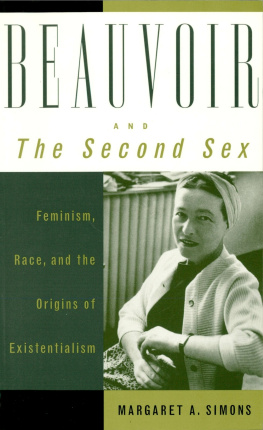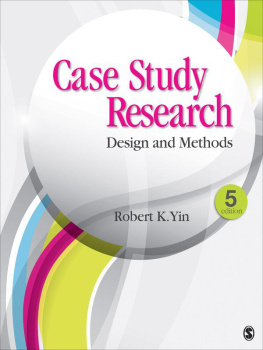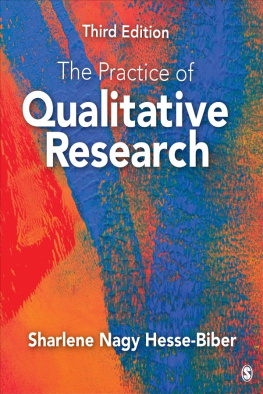Case Study Research in Practice
Case Study Research in Practice
Helen Simons
Helen Simons 2009
First published 2009
Apart from any fair dealing for the purposes of research or private study, or criticism or review, as permitted under the Copyright, Designs and Patents Act, 1988, this publication may be reproduced, stored or transmitted in any form, or by any means, only with the prior permission in writing of the publishers, or in the case of reprographic reproduction, in accordance with the terms of licences issued by the Copyright Licensing Agency. Enquiries concerning reproduction outside those terms should be sent to the publishers.
SAGE Publications Ltd
1 Olivers Yard
55 City Road
London EC1Y 1SP
SAGE Publications Inc.
2455 Teller Road
Thousand Oaks, California 91320
SAGE Publications India Pvt Ltd
B 1/I 1 Mohan Cooperative Industrial Area
Mathura Road, Post Bag 7
New Delhi 110 044
SAGE Publications Asia-Pacific Pte Ltd
33 Pekin Street #02-01
Far East Square
Singapore 048763
Library of Congress Control Number 2008929580
British Library Cataloguing in Publication data
A catalogue record for this book is available from the British Library
ISBN 978-0-7619-6423-0
ISBN 978-0-7619-6424-7 (pbk)
Typeset by C&M Digitals (P) Ltd, Chennai, India
Printed by TJ International Ltd, Padstow, Cornwall
Printed on paper from sustainable resources
For my past students and all who follow in their path.
CONTENTS
ACKNOWLEDGEMENTS
Case study research and its development is a social process. I have been fortunate to have been part of a community of scholars whose conversations and challenges over the years have contributed immensely to my understanding of case study research and helped shape my practice.
Some of my debts will be obvious, some less so, and there are some to whom I owe special thanks. I am deeply grateful to Barry MacDonald, CARE, and Bob Stake, CIRCE, champions of case study research at a time when it was uncharted territory in educational evaluation and research, for the opportunitites to develop the theory and practice of case study reserach; to other colleagues in these centres at various times Rob Walker, Nigel Norris, John Elliott, Saville Kushner, Ernie House for their colleagueship and shared field experience; and to all Cambridge conference colleagues for the stimulating dialogue exploring the changing field of evaluation.
I would also like to thank several generations of research students whose questions and discussion in seminars prompted me to write this book. In particular I thank Jane Payler, Rosie Flewitt, Elena Ioannidou and Susan Duke, who took time from their current busy lecturing and research lives to read the manuscript in draft. Your suggestions have greatly improved the text.
So many friends have also been immense support. It is not possible to name them all, but I do want to thank those who read the manuscript in part or whole in draft, Ruth Thomson, Sue Ebury, Veronique Chown, Claus Moser, and Judy Hicks, a colleague in collaborative arts inquiry, who read the entire manuscript with me and offered her astute critique and wisdom. Many supported in other ways with their patience in my temporary retreat from social life, and awarenesss of what it takes to finally get a manuscript to press. Conversations at critical times with Jennifer Greene, Georgie Parry-Crooke, Veronique, Judy and Sue gave me the impetus to complete. Their love and support have sustained me through the process.
I also thank Claire Lipscomb and Vanessa Hawood at Sage for their prompt and helpful responses to my queries and Patrick Brindle, Senior Editor at SAGE, for his gentle persuasion and unfailing support.
There are many more too numerous mention to whom I am equally grateful but who for confidentiality reasons I cannot name. To those who have been part of the cases I have studied, I owe a special debt and thanks. Case study research relies on the generosity and honesty of individuals in the case. I would like to acknowledge that my understanding of the approach has been greatly informed by their participation and challenges in the field, which have led to many of the reflections in this book.
PROLOGUE
This book is about the theory and practice of case study research. It tells how to construct, conduct and communicate the story of the case that is the subject of the research. Story provides an integrating metaphor for the process of case study described in this book and the underlying narrative structure of the case. Every institution or programme has a story to tell about its origin, its development, its achievements at a particular time. Case study documents and interprets the complexity of that experience in its specific socio-political context.
Underlying this account of the process is the story of my experience as a case study researcher in education and related professional fields. I have written with students in mind, inspired by questions they have often asked about case study research and to dispel some myths that have arisen around the practice. Laura, a research student, raised some of these concerns in the following letter.
Dear Helen
I wonder if you can help. I would like to undertake a case study for my thesis. I looked in the university library for good examples. What I found were many MA and PhD theses claiming to have conducted case study research, though it was not always clear what constituted a case study or what the case was. Some appeared to have taken an institution as a case, others an issue or a person. Quite a number had conducted a few interviews and observations in a setting and called it a case study. And several talked about case study as though it was a method in itself. Is this right? There was little evidence of having designed a study and analysed or interpreted the data and few mentioned ethics, which I think is rather important when people feature prominently in a case study.
I have further questions, which also worry my supervisor, concerning the extent to which I can generalize and theorize from the case and how to defend the accusations that case studies are too subjective and not useful in policy-making. I am interested in these issues as I hope that my study will make a contribution to policy and practice. But these concerns can wait a little. The immediate help I require is with clarification of the concept, methods, design and analysis. How can I advance a legitimate case for case study that can be conducted with rigour and produce credible findings? Are there any references that would help? And how might I best get started?
Yours sincerely
Laura
Here is my reply.
Dear Laura
Thank you for your letter. The issues you raise are very familiar. Rather than try to squeeze an answer to your queries in a single response to your letter, I have decided to write a book to respond in more depth. Here is a brief outline of the contents.
Early chapters will focus on the concept and purpose of case study, design and methods. Here you will find the reference support you seek for the justification of the approach. The middle chapters will concentrate on the process itself, particularly the study of individuals, the self as the main instrument of data gathering, and how to create and maintain ethical relationships in the field



